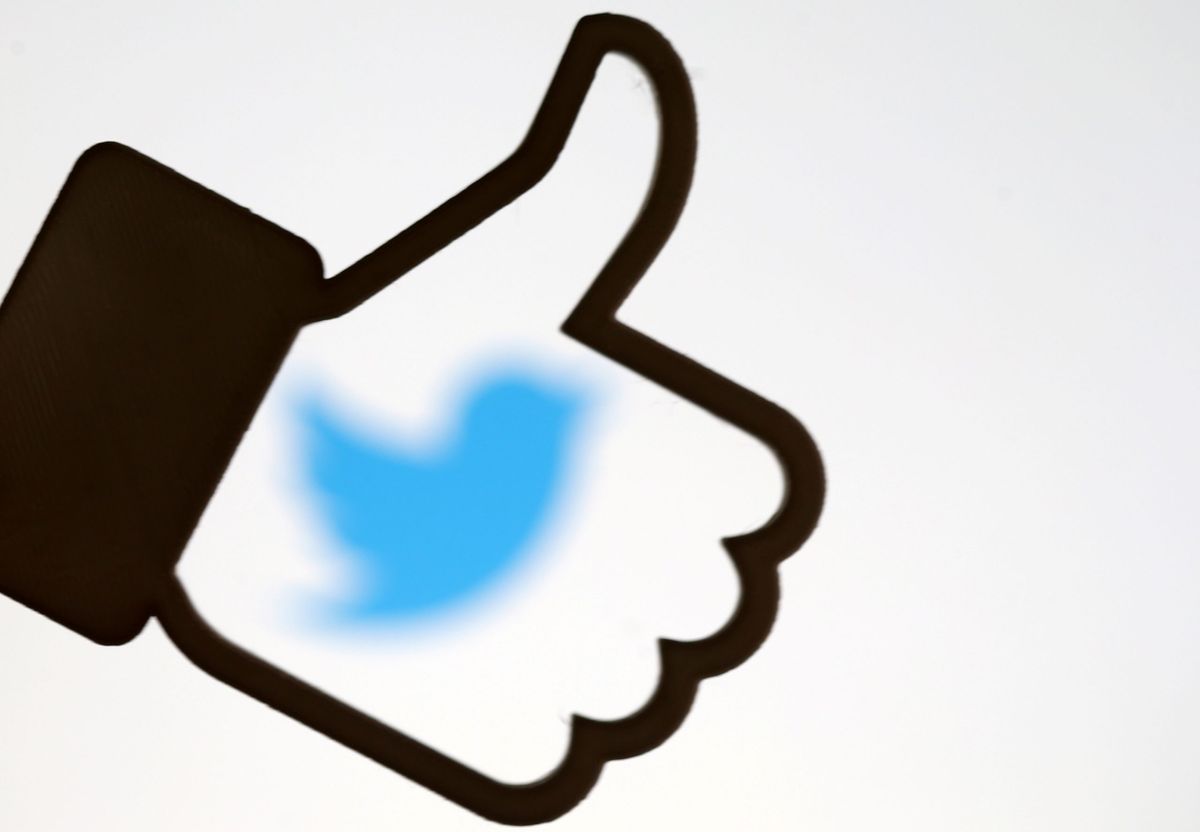Does deplatforming work?

A few minutes every morning is all you need.
Stay up to date on the world's Headlines and Human Stories. It's fun, it's factual, it's fluff-free.
To understand the effect deplatforming can have, it’s useful to look at the example of Milo Yiannopoulos, once one of the most visible and reviled figures of the “alt-right.”
Following the January 6 attack on the United States Capitol, President Donald Trump was temporarily banned from his favorite social media platforms, Twitter and Facebook. Days later, those platforms, as well as many others, enacted permanent bans. Some celebrated the bans for limiting the president’s ability to incite violence. Others decried the move as censorship and a dangerous precedent.
While Trump is certainly the most powerful figure to be “deplatformed” on social media, he is hardly the first divisive public figure to lose their digital bully pulpit. Deplatforming (or “no-platforming”) is controversial, both because it has been criticized as censorship and because many maintain that it doesn’t work. These critics argue repellent beliefs need to be defeated through reason, not silenced.
Yet, there is evidence that deplatforming works in limiting the spread of dangerous ideologies and the monetization of such speech. In addition to removing the financial incentive for spreading hateful or otherwise contentious views, being deplatformed cuts extremists off from a larger audience, restricting their messages to hidden corners of the internet.
To understand the effect deplatforming can have, it’s useful to look at the example of Milo Yiannopoulos, once one of the most visible and reviled figures of the “alt-right.” Few people in recent years have been more thoroughly deplatformed than Yiannopoulous, so his experience provides a reliable barometer of the practice’s efficacy.
The case of Milo Yiannopoulos
Social media is vital to the spread of extremist ideologies, not just online but in public spheres. The major platforms, such as Facebook and Twitter, have attempted to crack down on such rhetoric, particularly when it advocates violence. At the same time, smaller platforms have welcomed controversial individuals and groups in the name of free speech.
One of the most controversial figures of the last decade was Milo Yiannopoulos, a former writer and editor for the conservative news site Breitbart News and a consummate internet troll. A 2016 Bloomberg profile of Yiannopoulos described him as “the pretty, monstrous face of the alt-right.” The profile described his alt-right followers thusly:
“They’re angry about globalization—culturally even more than economically. They’re angry about political correctness guilting them about insensitivity to women, minorities, gays, transgender people, the disabled, the sick—the everyone-but-them. They’re angry about feminism. They don’t like immigrants. They don’t like military intervention. They aren’t into free trade. They don’t like international groups such as the European Union, United Nations, or NATO—even the International Olympic Committee. They admire the bravado of authoritarians, especially Vladimir Putin. Some are white supremacists. Most enjoy a good conspiracy theory.”
Considering that description, it is worth noting that Yiannopoulos is gay and has openly discussed his sexual relations with Black men. He provides a contrast in expectations, a proudly gay man with staunchly conservative views. Nailing down Yiannopoulos’s genuine beliefs, as opposed to the things he says merely for shock value, can be difficult.
Yet he rarely ignores an opportunity to espouse misogynistic views or attack women generally. It was that tendency that got him banned from Twitter in 2016 after he encouraged his fans to harass comedian and actress Leslie Jones on the platform. That year, Jones had co-starred in the all-female remake of “Ghostbusters,” a film that received a glut of sexist backlash.
At the time, Yiannopoulos’s Twitter ban was celebrated by his detractors and condemned by his fans. Others maintained that deplatforming him wouldn’t have an effect. After all, there were many more who shared his views, so silencing Yiannopoulos (on Twitter, at least) wouldn’t stop the alt-right. Some believed it would backfire and make him more popular.
In February 2017, Yiannopoulos lost even more platforms after a recording of him was released in which he was heard apparently justifying adult sexual relationships with young teenagers. He resigned from Breitbart, had his invitation to speak at the Conservative Political Action Conference (CPAC) rescinded and was dropped by Simon & Schuster, who had been set to publish his book later that year.
(In a fitting touch of symmetry, Senator Josh Hawley, a Trump loyalist, recently had his book deal with Simon & Schuster canceled for his alleged role in inciting the January 6 attack.)
In 2019, Yiannopoulos’ deplatforming by mainstream sites reached its inevitable conclusion when Facebook banned him and other extremist figures, including Alex Jones and Louis Farrakhan.
That same year, VICE reported that Yiannopoulos was broke and desperate, having lost his main source of income.
Posting in Telegram, a messaging app popular with members of the far-right, Yiannopoulos complained that his fan base had stagnated since being deplatformed and he could no longer make a living through them: “It’s nice to have a little private chat with my gold star homies but I can’t make a career out of a handful of people like that. I can’t put food on the table this way.”
For a time, Yiannopoulos was on Parler, the conservative social media platform. Of course, now that Parler has been deplatformed itself, that is just one more outlet no longer at his disposal. In the final days of Parler, he posted: “I lost everything helping to put Trump in office. My life and career were completely destroyed. Was it worth it? No. I feel utterly betrayed. I will have vengeance.”
Whether deplatforming works to contain the beliefs of the deplatformed is still up for debate. Since other alt-right figures, such as Paul Joseph Watson, have maintained their platforms (though many, including Watson, have since distanced themselves from the alt-right label), it’s difficult to determine whether the deplatforming of Yiannopoulos lessened the spread of that particular ideology.
There is evidence, however, that deplatforming can lessen the spread of misinformation. According to a recent report, after Trump was banned from Twitter earlier this month, misinformation related to voter fraud on that platform dropped 73% in one week.
Is deplatforming an attack on free speech?
The deplatforming of controversial figures has become fairly common practice as social media platforms increasingly try to tamp down on misinformation and conspiracy theories. At the same time, smaller social media platforms hope to create a welcoming environment for such people in order to draw in their followers.
Trump’s ban from multiple platforms and the recent shutdown of Parler has reignited the debate over whether deplatforming works. It has also led to criticism, mostly from conservatives, that the action taken by various social media platforms and web hosts have constituted a violation of free speech.
The common retort to this assertion is that the right to free speech, as enshrined in the 1st Amendment of the US Constitution, can only be violated by the government. A private company, such as Facebook or Twitter, has the right to refuse service to anyone it chooses. This was affirmed by the Supreme Court when it ruled that a Colorado bakery could refuse to bake a cake for a same-sex wedding.
There remain concerns over the fact that private corporations like Facebook, Twitter and Amazon have unprecedented power to silence objectionable voices. Yet, such companies could also face legal liability if people used their sites and related products to plan and carry out a violent attack.
This would certainly be the case if Section 230 of the 1996 Communications Decency Act was repealed, something Trump has attempted to do. Ironically, if Trump had been successful in repealing Section 230, Twitter could be held responsible for anything posted on their site. In that case, the company would have an even greater reason to ban divisive users, including Trump himself.
Have a tip or story? Get in touch with our reporters at tips@themilsource.com




Comments ()